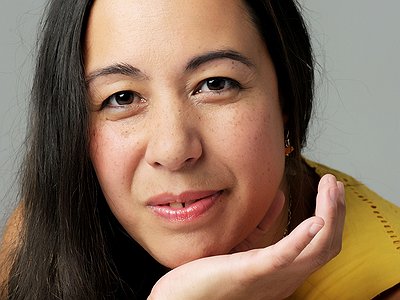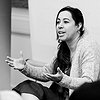Part 2
How do you make use of technology? In terms of the feedback mechanism between technology and creativity, what do humans excel at, what do machines excel at?
It is a tool, used in every sense to connect with people and promote artists; it has never been more important than when all live music has been impossible over the last three months. Some of the artists and organisations who have been able to shine in this time have been those who have used technology, social media and streaming to their advantage, using new ways to reach and grow their audiences. It has been interesting for the entire classical industry to reflect how little they have used digital technology to reach their audiences to share their creativity and art. I think we shall see more connection between art and technology in the future, which is very positive. In my work, I use technology as a tool, a way to connect with journalists and work with artists and communicate with work colleagues (particularly important while everyone is home working). No longer do you just email and phone journalists; there are now so many ways to get their attention and share and promote artists’ work.
Collaborations can take on many forms. What role do they play in your approach and what are your preferred ways of engaging with other creatives, writers and possibly even the artists you're working with?
I love to bring people and ideas together. I have been working in music and classical music now for more than 10 years and I have always worked at the forefront of new music. What I have learnt in that time is how important connections are to encourage creativity and give opportunities to artists and composers. I have in the past worked in royalties companies, offering advice to composers and information to the classical industry. I have also worked in funding, helping large and small projects to come to fruition and now working in PR I realise that even in this role everything is connected. At WildKat PR I like working with artists on their level. Knowing so many people across the industry I am always thinking how a collaboration from different sides could lead to a more interesting press angle or a story of greater significance. Perhaps it is because I think like an artist, so I can also see things from a different angle. Playing violin in orchestras and a Prog rock band and with an avid interest in contemporary classical music, one of my great passions is supporting living composers, which I like to do from every angle I can.
Can you take me through your process on the basis of a campaign that's particularly dear to you, please? What did you start with, what were some of the most important aspects and how did you combine the different elements into a coherent whole?
In 2019 I worked on a wonderful campaign with composer Errollyn Wallen. She had a new commission for the BBC Proms that year with BBC National Orchestra of Wales and the piece was a homage to the painter Howard Hodgkin. It was so lovely in this instance to be working with a composer I had known well for many years and for such a large high-profile event. It was exciting to think where coverage might be possible, beyond just celebrating the premiere of a new classical work. I spoke to the Proms PR team early on, as for a large event like this there are many parties to consider and keep in the loop.
It was useful to raise attention to her work and how interesting a composer she is, this was useful to do early on to have her high in the mind of the Proms PR team in their planning. Knowing Errollyn so well as a composer I also knew that she liked to write in her lighthouse in Scotland, which I always thought was such a wonderful romantic image to portray for a modern composer. So, from the very outset I decided to branch wide for press around the idea of a modern composer living in a lighthouse. This really gained much interest from a wide array of press and also was of great interest to the Proms PR team as well.
Between us, we started coordinating interviews for the Sunday Times Travel section and BBC Breakfast. I also gained interest from the BBC One Show and BBC Radio 4 Woman’s Hour, as well as making sure Errollyn’s presence at the Proms was mentioned in the classical press by arranging classical podcasts and online interviews. The most interesting thing about this campaign was keeping all the leads live. There was a lot of work behind the scenes coordinating when coverage would be published or broadcast and when filming could happen at the lighthouse. We wanted it all to be timed well for the concert itself, so there was a lot of administration to keep things moving.
Certain productions were also in competition with one another so by careful timing of broadcasts I managed to convince different broadcasters to still feature Errollyn, keeping enough distance between the broadcasts and also making sure the focus of the interviews were different to keep their interest. The campaign went so well that Errollyn found out first-hand people who booked tickets to see the Prom from the press coverage. Also, a taxi driver taking us to the BBC Breakfast interview said: “Are you the composer who lives in a light house?”, having previously seen the One Show interview two weeks before. It was amazing to see a national audience taking notice of a modern composer. Then a month after the Proms, Errollyn also got an invite to be on the Proms Guilty Feminist Podcast which I believe was a direct result of her getting so much press attention in the lead up to her own concert at the Proms.
Could you take us through a day in your life, from a possible morning routine through to your work? Do you have a fixed schedule? How do music and other aspects of your life feed back into each other - do you separate them or instead try to make them blend seamlessly?
This is a hard one to answer, it depends if it’s my normal life or what has happened since lockdown? In lockdown, I get up about 7am and go to the park to do Chi gong and exercise; then I come back and have a big breakfast with grapefruit, cereal and a mini omelette (I love my breakfasts). Then I get to work an hour for my own consultancy where I work with composers and artists to help them strategise and build their careers. Then at 10am I begin my PR work for WildKat. I look thorough all emails relating to potential coverage and see what I can get moving. Depending on where I am in a campaign, I might spend a morning writing a strategy, formulating a new pitch angle for a client, or researching further journalists contacts that fit a particular campaign. I break for lunch and then continue. Every day is varied but often the back bone of running a campaign is similar.
As we are all working remotely I often check in with other members of the London Office via our online messaging system and then it can be good to organise a video call or two a week to brain storm ideas to increase creative thinking by working together. After work I usually have a wind down drink or catch up with friends over Zoom and relax. In normal times my evening during the week would be taken up with album launches, live concerts, networking events and me taking classical composers and industry friends to my favourite club in Soho - the Soho Whisky Club - or practicing violin in my own prog rock band. I have to admit I have been missing my old evening routine a little in the last few months, but I would definitely say all my life is entirely interlinked.
The results of a campaign are not always easy to measure. How do you define success for your work?
On one level if a client returns for further work or I stay in touch directly, then that always feels like a good campaign. I feel really fulfilled when I hear people mentioning they attended a concert or started listening to a person’s music in direct response to some coverage I achieved. Or perhaps sometimes I hear a year or two later that a sudden new commission or opportunity appeared for a composer or artist. Although sometimes it’s not always clear to see a direct link I can’t help feeling that perhaps my work had an influence on how and where this artist was seen.
There are many descriptions of the ideal state of mind for being creative. What is it like for you? What supports this ideal state of mind and what are distractions? Are there strategies to enter into this state more easily?
I like to foster a positive mood, when I am feeling most passionate and engaged. I encourage this by catching up with the client and hearing in their own words what makes them passionate. In addition, I find catching up with friends from the classical Industry and discussing ideas just gives me bigger and greater ideas which I feed back into my PR work. Distractions can occur and even with best endeavours, campaigns don’t always go to plan or a client is unable to deal with a less successful campaign than they hoped for with grace and want to place blame. I find in order to return to a more creative state of mind, it is important to take many breaks to come back again with fresh direction of thought and having brainstorms to soak up energy from other creative people and broaden your own ideas.
Art can be a purpose in its own right, but it can also directly feed back into everyday life, take on a social and political role and lead to more engagement. Can you describe your approach to art?
Art feeds back into my life every day; from playing violin to loving art exhibitions and museums, to being a huge film and film music fan. I am fascinated how one can be so moved by so many different forms of art; for me, music and film being particularly strong. I am also fascinated by history and where our art and culture has come from. Having studied archaeology, at one point I was particularly interested in early churches in the Middle East and how important church buildings were as places for ordinary people to look to as something mystical and bigger than their own lives; brought through the stain glass windows, the music, the design of the buildings and so much more; it fascinates me how art played a part in building a holy experience for centuries.
It is remarkable, in a way, that we have arrived in the 21st century with the basic concept of music PR still intact. Do you have a vision of your job, an idea of what it could be beyond its current form?
PR for me, is a bigger part of a whole of what I want to achieve in my career, supporting composer and artist strategy. Composers particularly underestimate the role promotion has in a successful career. I want my knowledge and understanding of PR and the industry to help future generations to be savvier as they build their career.






